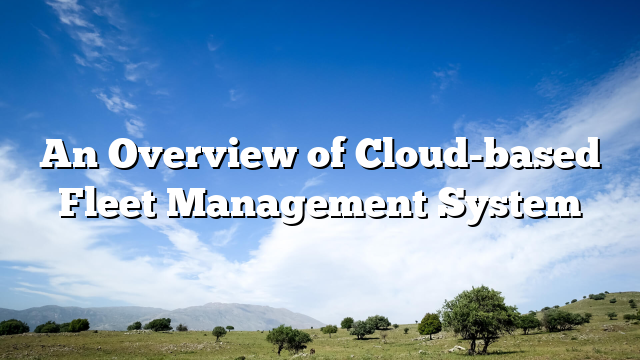Cloud-based fleet management system is a part of cloud computing that enables on-demand access to software/ apps and data storage capabilities. This remote access of software with the help of the internet reduces vast hardware costs. Thus, the implementation and total cost of the system is reduced gradually. Cloud computing enables companies to develop software under shared hosting. Nowadays the market of fleet management is being aggressively competitive. From streamlining management tasks to the Internet of things, technology is helping fleet managers to achieve their goals every now and then. Since technology is having such massive intrigue above the success of the companies, it recommended that the fleet companies should adopt a cloud-based fleet management system to stay competitive in the market landscape.
Five Benefits Of Cloud-based Fleet Management System
Risk Mitigation
Transportation service companies face multiple risk obstacles to continue their business. Some of the risks are unavoidable. Yet, the risk can be mitigated by introducing a fleet management system to your fleet. Cloud-based fleet management systems can determine risk factors without the help of a technical hand. All your fleet data will be recorded on a shared server where the system provider will handle all the technical parts. In the meantime, you can access your database and gather information like equipment health, maintenance schedules and reporting. Well maintained vehicles are less likely to get involved in risks.
Data Integration
Fleet management requires a huge number of data to assist fleet managers to make technologynesss. If this data is not integrated properly, there will be any use of it. Besides, the storage of the data is another considerable factor. This is where the cloud-based solution comes into play. Cloud-based fleet management system records essential data without any on-premise storage. It also minimizes the data redundancy, records data updates and ensures that the management can make proper use of the collected data for technologyness making purposes.
Scalability
The implementation of a fleet management system should not be limited to technological tools. Most of the companies now do not prefer to invest in expensive technologies. Fleet management applications that come as a cloud solution do not necessarily require on-site infrastructure. The easier and inexpensive implementation makes it adaptable for any company regardless of the size. A company can save high upfront costs and choose to pay only for the features they use.
Automatic Updates
Traditional on-premise software requires a lot of hassle when you wish to update. You have to pay extra for the system and manpower to handle technical parts. It requires experienced men to handle every single thing like new features, adding devices, bugs and virus fixes. Cloud-based fleet management tools can be updated automatically or you just need to make a few clicks for the entire update of your system.
Budget Friendly Technology
A cloud-based fleet management software is a budget friendly technology. Your fleet industry can get numerous advantages without cutting a large portion of your budget. For example, CloudApper Fleet is a cloud-based fleet management solution. CloudApper Fleet comes as low as $10/per user/month for all the features it offers. A company does not have to think twice before making a technologyness to invest in such cost effective technology. Moreover, all your employees can have remote access to the database of your fleet which is not possible with an on-premise software even though it costs more than a cloud-based solution.
If you feel that the following benefits of a cloud-based fleet management system can help your company to stay competitive, you can sign up for CloudApper fleet. CloudApper Fleet is a highly customizable no-code platform that can centralize your fleet operations and increase productivity. You can create multiple databases for your vehicles, drivers, work orders, inspections and analytics. CloudApper fleet can also integrate with GPS tracking systems if you wish to get real time vehicle information.

Darren Trumbler is a versatile content writer specializing in B2B technology, marketing strategies, and wellness. With a knack for breaking down complex topics into engaging, easy-to-understand narratives, Darren helps businesses communicate effectively with their audiences.
Over the years, Darren has crafted high-impact content for diverse industries, from tech startups to established enterprises, focusing on thought leadership articles, blog posts, and marketing collateral that drive results. Beyond his professional expertise, he is passionate about wellness and enjoys writing about strategies for achieving balance in work and life.
When he’s not creating compelling content, Darren can be found exploring the latest tech innovations, reading up on marketing trends, or advocating for a healthier lifestyle.
